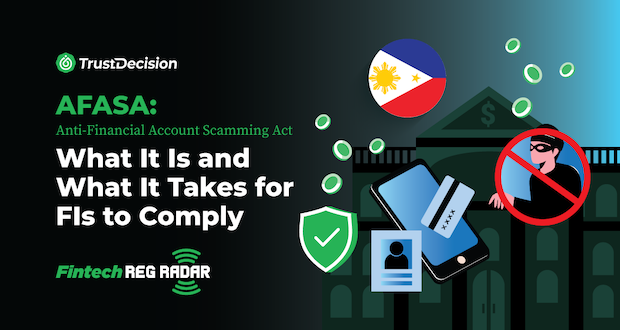Understanding the Landscape of Game Scammers
Definition and Types of Game Scammers
A game scammer is an individual or group that engages in fraudulent activities within the gaming ecosystem to exploit players and developers for financial gain. These scammers employ a variety of methods to achieve their objectives, ranging from simple phishing schemes to sophisticated hacking techniques. The primary types of game scammers include:
Phishers: These scammers trick players into revealing personal information, such as login credentials or payment details, often through fake websites or deceptive emails.
Hackers: These individuals use technical skills to breach game servers, steal data, or manipulate game mechanics.
Cheaters: Utilizing cheating software for games, these scammers gain unfair advantages, disrupting the gaming experience for others.
Fraudsters: These scammers focus on financial exploitation, including in-game purchase fraud and game currency scams.
Common Tactics Used by Game Scammers
Game scammers employ a range of tactics to achieve their fraudulent goals. Some of the most common methods include:
Phishing Attacks:
- Scammers create fake websites or send deceptive emails that mimic legitimate gaming platforms.
- Players are tricked into entering their login credentials or payment information, which is then stolen and used for fraudulent activities.
Cheating Software for Games:
- Scammers develop and distribute cheating software that provides unfair advantages, such as aimbots, wallhacks, or speed hacks.
- This not only disrupts the gaming experience but also undermines the integrity of the game.
In-Game Purchase Fraud:
- Scammers exploit vulnerabilities in the in-game purchase systems to make unauthorized transactions.
- This can involve stolen credit card information or exploiting loopholes in the game's payment processing.
Game Currency Scams:
- Scammers acquire in-game currency through illicit means and sell it to players at discounted rates.
- This disrupts the game’s economy and can lead to significant financial losses for developers.
The Impact of Game Scams on the Gaming Industry and Player Trust
The impact of game scams on the gaming industry is profound and multifaceted. Financially, game scams can result in substantial losses for developers and publishers. In-game purchase fraud, for instance, not only affects revenue but also incurs additional costs related to chargebacks and fraud prevention measures.
Beyond the financial implications, game scams erode player trust. When players fall victim to scams, they are less likely to engage with the game or make future in-game purchases. This loss of trust can have long-term repercussions, affecting player retention and the overall reputation of the gaming platform.
Moreover, the prevalence of cheating software for games can significantly degrade the gaming experience. Players who encounter cheaters are likely to become frustrated and disengaged, leading to a decline in the active player base. This, in turn, can impact the game's community and its long-term success.
In summary, understanding the landscape of game scammers is crucial for both players and developers. By recognizing the various types of scammers and their tactics, stakeholders can implement effective measures to mitigate these threats. In the following sections, we will explore best practices and innovative solutions to stay ahead of game scammers in 2024, ensuring a secure and enjoyable gaming environment for all.
The Rise of In-Game Purchase Fraud
Explanation of In-Game Purchase Fraud and Its Prevalence
In-game purchase fraud is a growing concern in the gaming industry, driven by the increasing popularity of microtransactions and digital goods. This type of fraud occurs when scammers exploit vulnerabilities in the payment systems of games to make unauthorized transactions. These fraudulent activities can range from using stolen credit card information to exploiting loopholes in the game's payment processing mechanisms.
The prevalence of in-game purchase fraud has surged alongside the rise of free-to-play games that rely heavily on microtransactions for revenue. As more players engage in in-game purchases, the opportunities for scammers to exploit these transactions have multiplied. According to industry reports, in-game purchase fraud has become one of the most significant threats to the financial health of gaming companies, with millions of dollars lost annually to fraudulent activities.
How In-Game Purchase Fraud Affects Both Players and Game Developers
The impact of in-game purchase fraud is far-reaching, affecting both players and game developers in several ways:
Financial Losses for Developers: In-game purchase fraud directly impacts the revenue of game developers. Unauthorized transactions often lead to chargebacks, which not only result in lost revenue but also incur additional fees from payment processors. Over time, these financial losses can accumulate, affecting the overall profitability of the game.
Increased Operational Costs: To combat in-game purchase fraud, developers must invest in advanced fraud detection and prevention systems. This includes implementing robust anti-fraud measures, conducting regular security audits, and maintaining compliance with payment processing standards. These efforts can significantly increase operational costs.
Erosion of Player Trust: When players fall victim to in-game purchase fraud, their trust in the game and its developers is compromised. Players who experience unauthorized transactions may become wary of making future purchases, leading to a decline in player engagement and revenue. Additionally, negative experiences can result in poor reviews and a damaged reputation for the game.
Disruption of Game Economy: In-game purchase fraud can disrupt the balance of the game's economy. Fraudulently acquired items or currency can create unfair advantages, leading to player dissatisfaction and a potential exodus of legitimate players. Maintaining a fair and balanced game economy is crucial for player retention and long-term success.
In conclusion, the rise of in-game purchase fraud presents a significant challenge for the gaming industry. Understanding the prevalence and impact of this type of fraud is essential for developing effective strategies to combat it. In the next sections, we will explore best practices and innovative solutions to protect against in-game purchase fraud and other game scams, ensuring a secure and enjoyable gaming experience for all players.
Game Currency Scams: A Growing Concern
Overview of Game Currency Scams and How They Operate
Game currency scams are a pervasive issue in the gaming industry, targeting both players and developers by exploiting the virtual economies within games. These scams typically involve the illicit acquisition or sale of in-game currency, which can be used to purchase items, unlock features, or gain competitive advantages. The methods employed by game scammers in these schemes are varied and often sophisticated, including:
- Account Hacking: Scammers gain unauthorized access to player accounts to steal in-game currency. This is often achieved through phishing attacks or exploiting weak passwords.
- Exploiting Game Glitches: Scammers identify and exploit bugs or glitches within the game to generate unlimited in-game currency. These exploits can severely disrupt the game’s economy.
- Black Market Transactions: Scammers sell in-game currency on unauthorized third-party websites at discounted rates. These transactions are often conducted using stolen credit card information or through other fraudulent means.
- Fake Giveaways and Promotions: Scammers lure players with promises of free in-game currency through fake giveaways or promotions, only to steal their personal information or account credentials.
Strategies to Detect and Prevent Game Currency Scams
To mitigate the risks associated with game currency scams, developers must adopt a multi-faceted approach that includes both preventive measures and real-time detection strategies:
Implement Robust Anti-Cheating Software: Utilize advanced anti-cheating software to detect and prevent the use of exploits and glitches that generate illicit in-game currency. Regular updates and patches are essential to address newly discovered vulnerabilities.
Strengthen Account Security: Encourage players to use strong, unique passwords and enable multi-factor authentication (MFA) for their accounts. Implementing these measures can significantly reduce the risk of account hacking.
Monitor Transactions and Player Behavior: Employ AI and machine learning algorithms to monitor in-game transactions and player behavior for suspicious activities. Anomalies such as sudden spikes in currency transfers or unusual purchasing patterns can indicate potential scams.
Educate Players: Raise awareness among players about the risks of game currency scams and the importance of purchasing currency through legitimate channels. Provide clear guidelines on how to recognize and report suspicious activities.
Collaborate with Payment Processors: Work closely with payment processors to identify and block fraudulent transactions. Implementing real-time fraud detection systems can help in quickly identifying and mitigating unauthorized purchases.
Regular Audits and Security Reviews: Conduct regular audits and security reviews to identify potential vulnerabilities in the game’s economy and payment systems. Proactively addressing these issues can prevent exploitation by scammers.
In conclusion, game currency scams represent a significant threat to the gaming industry, affecting both financial stability and player trust. By understanding how these scams operate and implementing comprehensive detection and prevention strategies, developers can protect their games and ensure a fair and enjoyable experience for all players. In the following sections, we will explore additional best practices and innovative solutions to combat game scammers, including the role of AI-based fraud management systems.
Best Practices for Staying Ahead of Game Scammers
Regularly Update and Patch Games to Fix Vulnerabilities
One of the most effective ways to stay ahead of game scammers is to ensure that your game is regularly updated and patched. Vulnerabilities in game code can be exploited by scammers to gain unauthorized access, manipulate game mechanics, or engage in in-game purchase fraud. Here are some key practices:
Frequent Security Audits: Conduct regular security audits to identify potential vulnerabilities in your game’s code and infrastructure. Addressing these issues proactively can prevent exploitation by game scammers.
Timely Patches and Updates: Release patches and updates promptly to fix identified vulnerabilities. Keeping your game’s software up-to-date is crucial for maintaining a secure gaming environment.
Community Feedback: Encourage players to report bugs and suspicious activities. Leveraging community feedback can help identify vulnerabilities that may not have been detected through internal testing.
Implement Robust Security Measures to Protect In-Game Purchases and Game Currency
Protecting in-game purchases and game currency is critical for maintaining player trust and financial stability. Robust security measures can help prevent in-game purchase fraud and game currency scams. Here are some best practices:
Secure Payment Gateways: Use secure payment gateways that comply with industry standards for data protection. Ensure that all transactions are encrypted and that sensitive information is securely stored.
Fraud Detection Systems: Implement advanced fraud detection systems that use AI and machine learning to identify and block suspicious transactions in real-time. These systems can help mitigate the risk of in-game purchase fraud.
Transaction Limits and Verification: Set transaction limits and require additional verification for high-value purchases. This can help prevent large-scale fraud and protect both players and developers.
Regular Monitoring: Continuously monitor in-game transactions and currency flows for anomalies. Regular monitoring can help detect and address fraudulent activities before they escalate.
Monitor and Analyze Player Behavior to Detect Suspicious Activities
Monitoring and analyzing player behavior is a crucial component of a comprehensive anti-fraud strategy. By identifying suspicious activities early, you can take proactive measures to prevent game scams. Here are some effective practices:
Behavioral Analytics: Use behavioral analytics to monitor player actions and identify patterns that may indicate fraudulent behavior. For example, sudden changes in spending habits or unusual gameplay patterns can be red flags.
Real-Time Alerts:Set up real-time alerts for suspicious activities. This allows your security team to respond quickly to potential threats and take appropriate action.
Player Reporting Systems: Implement a robust player reporting system that allows players to report suspicious activities easily. Investigate these reports promptly to identify and address potential scams.
Data Integration: Integrate data from various sources, such as payment systems, gameplay logs, and player reports, to get a comprehensive view of player behavior. This holistic approach can help in identifying complex fraud schemes.
In conclusion, staying ahead of game scammers requires a multi-faceted approach that includes regular updates and patches, player education, robust security measures, and continuous monitoring of player behavior. By implementing these best practices, developers can create a secure and enjoyable gaming environment, protecting both their players and their business from the ever-evolving threat of game scams. In the next section, we will introduce TrustDecision's AI-Based Fraud Management Strategy, which offers advanced solutions to combat game scammers effectively.
TrustDecision's AI-Based Fraud Management Strategy
In the fight against game scammers, leveraging advanced technologies like artificial intelligence (AI) and machine learning can provide a significant edge. TrustDecision's AI-Based Fraud Management Strategy offers a comprehensive solution designed to protect gaming platforms from various types of fraud, including in-game purchase fraud and game currency scams. Here’s how TrustDecision’s strategy can help you stay ahead of game scammers:
1. Real-Time Fraud Detection
Utilizes AI and Machine Learning to Identify and Block Fraudulent Activities as They Occur:
TrustDecision employs cutting-edge AI and machine learning algorithms to monitor transactions and player activities in real-time. These technologies are capable of analyzing vast amounts of data quickly and accurately, identifying patterns and anomalies that may indicate fraudulent behavior. By continuously learning from new data, the system becomes increasingly adept at detecting and blocking fraudulent activities as they happen.
Helps in Mitigating Risks Associated with In-Game Purchase Fraud and Game Currency Scams:
Real-time fraud detection is particularly effective in combating in-game purchase fraud and game currency scams. By identifying suspicious transactions and activities immediately, TrustDecision can prevent unauthorized purchases and illicit currency transfers before they can cause significant harm. This proactive approach not only protects revenue but also maintains the integrity of the game’s economy.
2. Behavioral Analysis
Monitors Player Behavior to Detect Anomalies and Potential Game Scams:
TrustDecision’s behavioral analysis capabilities enable it to monitor player actions and detect deviations from normal behavior. By establishing baseline patterns for individual players and comparing current activities against these baselines, the system can identify anomalies that may indicate fraudulent behavior. For example, sudden spikes in in-game currency transfers or unusual purchasing patterns can trigger alerts for further investigation.
Provides Insights into Suspicious Activities, Enabling Proactive Fraud Prevention:
Behavioral analysis goes beyond merely detecting fraud; it provides valuable insights into the nature of suspicious activities. These insights allow developers to understand the tactics used by game scammers and take proactive measures to prevent future incidents. By identifying potential threats early, TrustDecision enables a more strategic approach to fraud prevention, reducing the overall risk to the gaming platform.
3. Comprehensive Reporting and Analytics
Offers Detailed Reports and Analytics on Fraud Incidents:
TrustDecision provides comprehensive reporting and analytics tools that give developers a detailed view of fraud incidents. These reports include information on the types of fraud detected, the methods used, and the players involved. By having access to this detailed data, developers can gain a deeper understanding of the fraud landscape and the specific challenges they face.
Helps Businesses Understand Fraud Patterns and Improve Their Anti-Fraud Strategies:
The analytics capabilities of TrustDecision allow businesses to identify trends and patterns in fraudulent activities. By understanding these patterns, developers can refine their anti-fraud strategies and implement more effective measures to combat game scammers. The ability to analyze historical data and predict future threats is invaluable in staying one step ahead of fraudsters.
In conclusion, TrustDecision's AI-Based Fraud Management Strategy offers a robust and comprehensive solution for combating game scammers. By leveraging real-time fraud detection, behavioral analysis, and comprehensive reporting and analytics, TrustDecision helps developers protect their games from in-game purchase fraud, game currency scams, and other fraudulent activities. Implementing such advanced technologies is crucial for maintaining a secure and enjoyable gaming environment, ensuring the long-term success and sustainability of the gaming platform.
Conclusion
As we move into 2024, the threat of game scammers continues to evolve, presenting new challenges for the gaming industry. Staying ahead of these malicious actors is crucial for protecting revenue and preserving the integrity of the gaming experience. From in-game purchase fraud to game currency scams, the impact of these fraudulent activities can be far-reaching.
Continuous vigilance is essential. Game developers must regularly update and patch games, educate players about game scams, implement robust security measures, and monitor player behavior for suspicious activities.
Adopting advanced fraud management solutions like TrustDecision is key. TrustDecision’s AI-Based Fraud Management Strategy offers real-time fraud detection, behavioral analysis, and comprehensive reporting and analytics. These tools provide a multi-faceted approach to combating game scammers, ensuring a secure and fair gaming environment.














